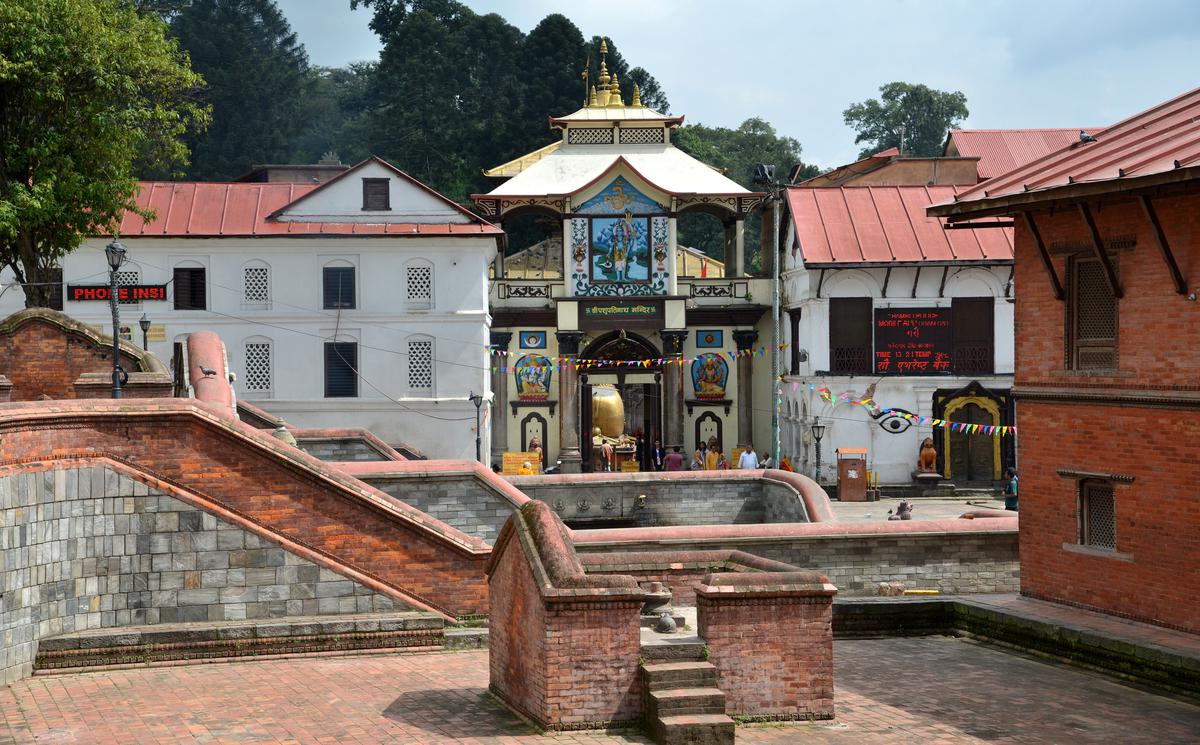Investigation Launched at Nepal’s Pashupatinath Temple Over Missing Gold Report
Nepal’s iconic Pashupatinath Temple, situated in Kathmandu and revered by Hindu devotees, found itself at the center of an investigation on June 25. The country’s Commission for the Investigation of Abuse of Authority (CIAA) has taken charge of the temple premises to probe a report of missing gold. Consequently, access to the temple was temporarily restricted, with security personnel, including Nepal Army soldiers, being deployed to ensure the investigation proceeds unhindered.
The ancient Pashupatinath Temple holds significant religious and cultural value in Nepal. However, it was temporarily closed to devotees in the afternoon as the CIAA initiated its inquiry into the alleged disappearance of 10 kilograms of gold from a 100-kilogram ornament.
The presence of security personnel, including Nepal Army soldiers, reinforces the seriousness of the investigation and underscores the authorities’ commitment to uncovering the truth. As the investigation progresses, the CIAA will employ its resources and expertise to determine the circumstances surrounding the missing gold and identify those responsible, if any.
The closure of the Pashupatinath Temple during the investigation period aims to facilitate an uninterrupted and thorough examination of the situation. Devotees are urged to cooperate and respect the temporary restriction as the authorities work diligently to shed light on the reported incident.
The missing gold report has raised concerns among the public, as the Pashupatinath Temple holds immense cultural and historical significance. The investigation seeks to address the matter transparently and ensure the preservation of the temple’s integrity.
As a symbol of faith and spiritual devotion, the Pashupatinath Temple serves as a reminder of the importance of safeguarding religious sites and maintaining their sanctity. The Nepalese government, in collaboration with relevant authorities, is committed to upholding the highest standards of accountability and transparency to protect the country’s cultural heritage.
The investigation conducted by the CIAA signifies the government’s dedication to combatting corruption and ensuring that sacred places like the Pashupatinath Temple remain revered and respected by all. The ultimate goal is to uphold the faith and trust of devotees and preserve the sanctity of Nepal’s religious landmarks for generations to come.
While the Pashupatinath Temple remains closed to devotees during the investigation, efforts are being made to expedite the process and restore normalcy at the earliest opportunity. The authorities will provide updates as the investigation progresses, ensuring transparency and accountability throughout the entire procedure.
In the spirit of solidarity, the Nepalese people stand united in their commitment to safeguarding their cultural heritage and ensuring that sacred sites remain places of reverence and devotion.

